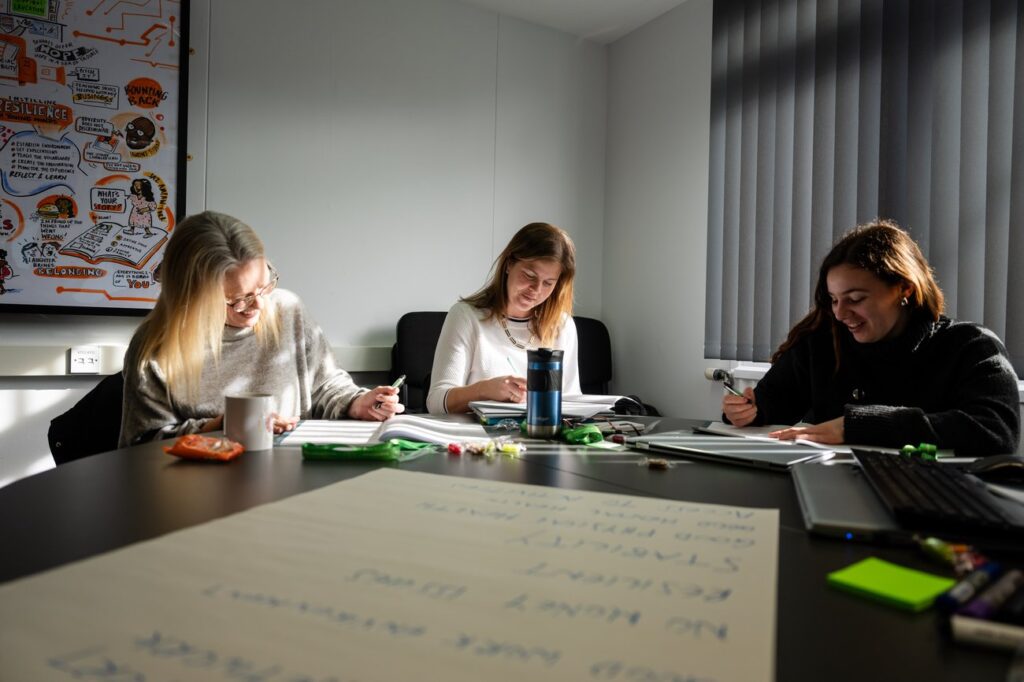Editor’s note: We are announcing the launch of a first-of-its-kind pilot with multi-academy trusts (MATs) Lift Schools and LEO Academy Trust to understand the impact that trust has on AI upskilling and adoption. This launch is the first in a series of pilots to get the UK working with AI. Google is partnering with MATs, SMBs and a trade union to uncover the most effective ways to unlock a productivity boost worth over £400bn by 2030. Hear from James Browning, COO at Lift Schools, about the AI Works pilot.
The first bells of the school day always set off a flurry of activity. The hallways buzz with children filing into their classrooms, as they catch up with their friends. Parents breathe a collective sigh of relief and praise their efforts to keep their kids punctual. This routine all happens right before our teachers use their tried and tested methods to settle the chatter and set the tone for the day ahead. This year at Lift Schools, we’re excited to explore how technology might help shake up our routines. Our teams are working with Google to uncover how we can use AI to streamline daily tasks, giving us more time to invest in creating engaging learning experiences for our pupils.
Analysis from Public First has found that almost three quarters (74%) of roles in the education sector could be enhanced by AI. This means that our teams — teachers, teaching assistants, administrators, and support staff — can use AI to complete daily tasks more efficiently. Imagine teachers brainstorming innovative lesson plans and creating engaging content in new formats that cater to diverse learning styles. Picture teaching assistants using AI to tailor learning materials to the specific needs of their students. Envision administrators using AI to more efficiently manage their workload. By streamlining these tasks, educators gain valuable time to focus on what matters most: providing personalised support, nurturing students’ passions, and fostering a love of learning.
AI has the potential to help millions of educators in many aspects of their roles. One of the ways that I hope that we’ll unlock this potential here is by building our teams’ trust in these AI-powered tools, so that more of us have the confidence to use them in more aspects of our roles. The ultimate test will be when I don’t have to think twice about using AI in front of a classroom full of energetic, well meaning, but eagle-eyed students.
While AI has tremendous potential to streamline administrative tasks and support educators in creating engaging learning experiences, it is important to emphasise that at Lift Schools we feel passionately that AI is not here to replace teachers in the classroom. At the heart of every classroom is the relationship between teacher and pupil — a dynamic that requires empathy, creativity, and personal connection. This can never, and should never, be replaced.
Our approach is about using AI to enhance, not automate, teaching. By supporting our teams with AI-driven tools, we can empower teachers to focus on high-impact, creative, and relationship-based aspects of education. AI will assist in tasks like resource creation and lesson planning, but it is the teachers who will continue to interpret, inspire, and guide their students towards success. This distinction is key — we see AI as a partner in education, not a replacement for the passion and dedication of educators.
Google’s ‘AI Works’ pilot seeks to address that. Myself and 150 other education professionals from 14 schools are taking part in the programme this autumn, to build our trust and confidence in AI while learning job-relevant time-saving use cases during hands-on workshops and 1-to-1s. In turn, Google will uncover learnings with the potential to help not only the nation’s teachers, but over 6 million public sector employees, as well as workers in different industries, to harness the power of AI.
This initiative is set to spur changes that transform working life for the better and usher in a new era of productivity, with the potential to boost educator job satisfaction and empowerment. This pilot programme for educators is just the beginning. As we learn and adapt, we’ll uncover even more ways to leverage AI to improve not just in schools, but across more workplaces. I’m filled with a sense of possibility as we embark on this journey and can’t wait to see the incredible ways AI helps us shape the future of learning.


